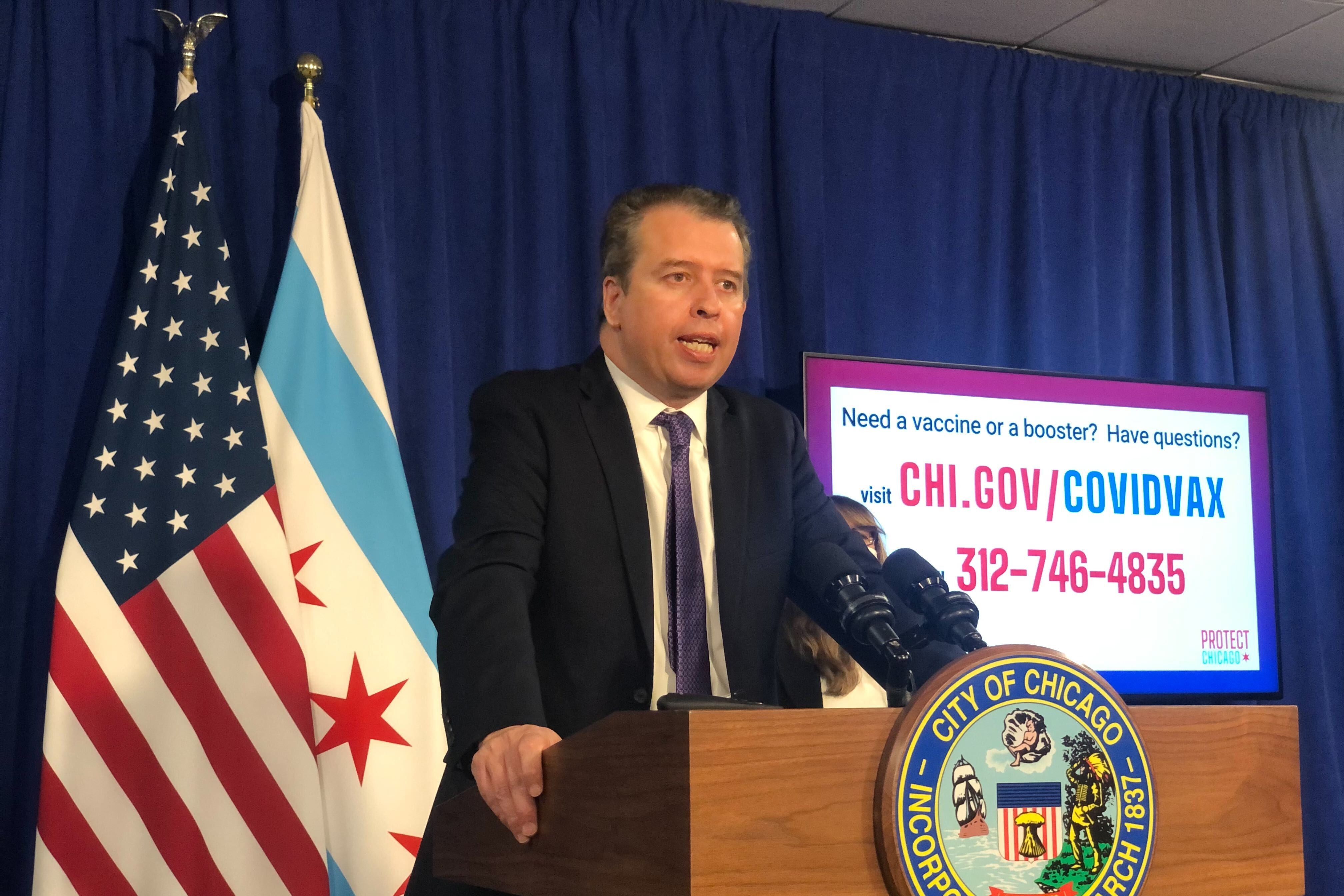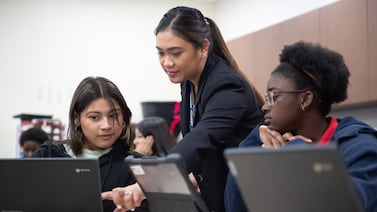This is a developing story.
7:40 p.m. Classes officially canceled Monday
Chicago Public Schools has officially canceled classes for a fourth day after negotiations failed to yield a compromise between the district and the teachers union over the weekend.
The school district notified parents Sunday night that classes would be canceled on Monday and asked them not to send children to school unless their school principal notifies families about in-person activities.
In a joint statement, Mayor Lori Lightfoot and district CEO Pedro Martinez announced the cancellation of classes “out of fairness and consideration for parents.”
“Although we have been negotiating hard throughout the day, there has not been sufficient progress for us to predict a return to class tomorrow,” Lightfoot and Martinez said.
The district and union planned to continue negotiations “through the night” and city and CPS officials would provide an update if there is “substantial progress,” the statement reads.
Last Tuesday, union leaders voted not to teach in person until an agreement was reached on COVID safety protocols or the current surge subsides.
Chicago Public Schools and the teachers have been locked in a stalemate on how to reopen campuses for in-person instruction for days.
In an email statement Sunday afternoon, union leaders said they wanted to reassure parents and guardians of Chicago students that they would remain at the bargaining table until an agreement was reached to return to in-person “safely and equitably.”
On Sunday night, a group of parents hosted a Facebook Live conversation with Dr. Allison Arwady, the city’s health commissioner, to ask questions about COVID in schools. The parents asked about the unique risks of the omicron variant, safety mitigations on campuses, student vaccination rates versus the general population, and why Arwady does not recommend remote learning.
While school cases go up when community cases do, Arwady said school itself had not been shown to be a major driver for COVID spread. Even though quarantine numbers had surged in December, she said fewer than 5% of children who had been quarantined had tested positive for COVID. She said the health department next week will distribute 1 million additional KN95 masks to the community next week and is in talks with the SHIELD testing program, developed by the University of Illinois, to boost testing capacity at community sites.
After the call with Arwady, several parents said their school communities are divided over the issue, and some are afraid to speak out because they don’t want to be viewed as criticizing their child’s teacher. They expressed frustration that, in three years, three disputes between Chicago Public Schools and the teachers union have interrupted the school year.
“It feels like we are caught in the middle of a custody war,” said parent Vanessa Chavez.
3 p.m. Negotiations continue
As negotiations between Chicago Public Schools and the teachers union continued Sunday, parents and students in the nation’s third largest school district faced the likely reality of starting the week without school.
Classes in the 330,000-student district have been canceled since Wednesday, after union members voted not to teach in person because of concerns over COVID protocols. Many schools have preemptively canceled classes Monday.
What exactly are the points of contention bringing learning to a halt?
The teachers union Saturday detailed its latest proposal calling for remote learning to start Wednesday and a return to in-person learning on Jan. 18. The union reiterated demands for opt-out COVID testing districtwide, and a metric to flip the district to remote learning.
Mayor Lori Lightfoot and CPS chief Pedro Martinez, in a joint statement Saturday afternoon, rejected the proposal, stating that students needed to be in school as soon as possible.
“That’s what parents want. That’s what the science supports. We will not relent,” the Saturday statement said.
Union members voted last Tuesday to stop reporting to work in person until the district reaches an agreement with the CTU or the omicron surge subsides.
The mayor and district leaders have criticized the union, calling the action an “illegal work stoppage” that is harming vulnerable students. The union has accused the mayor, and the district, of not doing enough to ensure students and staff safety.
During a Sunday appearance on NBC’s “Meet the Press,” Lightfoot said she was doing everything she could to get students back in classes this week. “We can get a deal done if there is good will on both sides,” Lightfoot said.
In the same interview, Lightfoot slammed the teachers union’s action as an “illegal walkout” and said they “abandoned their post and they abandoned their kids and their families.”
Despite dueling press conferences and statements, the union and district have made progress on various safety standards.
As of Sunday afternoon, the district and the union had reached agreement on:
- KN95 masks for all students and staff
- The reinstatement of health screeners decided on a school-by-school basis
- Incentives for substitute teachers
- Unpaid leave of absence accommodations for teachers and staff; and school-based contact tracing teams
The district also said Saturday that the governor will sell 350,000 COVID tests to Chicago to boost campus-based testing, something the union has called for.
Amid a new round of negotiations, the union and district have been unable to compromise on the following:
- In person learning:
The CTU has proposed that teachers return to schools starting Monday to help distribute electronic devices, and for remote learning to begin Wednesday, Jan. 12. In-person learning would resume on Tuesday, Jan. 18. The district has rejected the proposal and called for in-person learning to start as soon as possible.
- District-wide remote learning:
The district has rejected union calls for the entire district to flip to remote learning if the city’s COVID-19 positivity rate increases for seven consecutive days.
- School-by-school remote learning:
The district has agreed to set a school-by-school metric for when schools would flip to full remote learning, but the two sides can’t agree on the numbers. The teachers union is calling for specific schools to transition if 25% of employees are absent for two consecutive days with COVID-19 or if 30% of students in an elementary school homeroom are isolated or quarantined. Middle schools and high schools would flip if 25% of students are isolated or quarantined. The district’s earlier proposals called for schools to flip if half of campus enrollment is isolated or quarantined, or if 40% of teachers are out sick.
- Testing:
The union has called on the district to switch to opt-out COVID testing that would test 10% of students and staff, while also providing at-home tests to all students exhibiting symptoms. The district agreed to test 10% percent of students, but has rejected opt-out testing saying parental consent is needed for COVID testing. The district has expressed concern about securing tests, which are currently in short supply nationwide.
- Make-up days:
The union proposed for instructional days to be made up, with no punishment or loss of pay against members who participated in the work action. The district does not want to pay teachers who have not been reporting to work. Whether or not to provide “back pay” during union actions loomed large in the end of a 2019 strike that suspended school operations in the city, with Chicago ultimately giving in to the demand.
- Expedited arbitration:
The union proposal to select an arbitrator within seven days to resolve certain disputes has been rejected by CPS.






